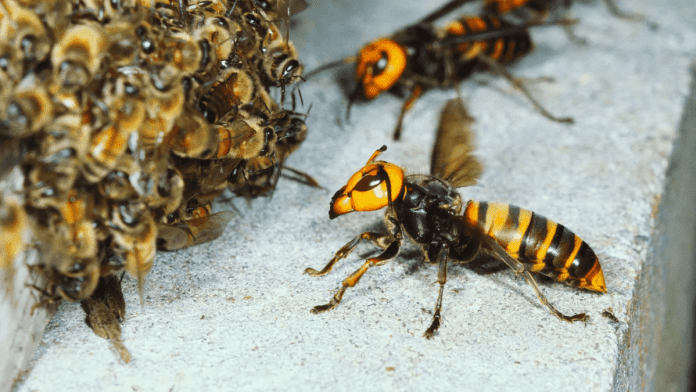News in Brief:
– Recent discovery of Asian hornet nests in Hull, England, raises concerns over threats to local bee populations and public health due to allergic reactions.
– Urgent calls for proactive measures emphasise the need for increased awareness and collaboration to combat the spread of Asian hornets and safeguard agricultural landscapes.
Recent discoveries of Asian hornet nests in Hull have sparked concerns over the potential impact on both the local bee population and individuals allergic to stings. East Riding councillors, prompted by the discovery of two nests, emphasised the urgent need for action to mitigate the threat posed by these invasive insects.
Conservative Councillor Jonathan Owen, speaking from personal experience as his wife is a beekeeper, highlighted the peril Asian hornets pose to honey bees. Their predation not only jeopardises bee populations crucial for pollinating crops but also destabilises fragile ecosystems.
Labour’s Kevin Casson echoed these concerns, noting the alarm within the beekeeping community following the hornets’ appearance in the area last autumn.
First detected in Britain in 2016, Asian hornets have proliferated rapidly, with sightings doubling in 2023 compared to previous years. This alarming trend, exemplified by a sighting in Kent as early as March this year, underscores the urgent need for intervention.
Threats to agriculture and public safety
The Department for Environment Food and Rural Affairs (DEFRA) confirmed the capture of an Asian hornet, illustrating the pressing need for vigilance. These hornets, with worker sizes of up to 25mm and queens reaching 30mm, pose a significant threat to honey bee populations. Their insatiable appetite, consuming up to 50 bees daily, not only disrupts ecosystems but also poses risks to public health, particularly for those allergic to stings.
Councillor Owen stressed the necessity for proactive measures to combat the spread of Asian hornets, urging increased awareness and collaboration with local beekeeping associations. The council’s commitment to monitoring and eradication efforts is essential in safeguarding the region’s agricultural landscape and public safety.



